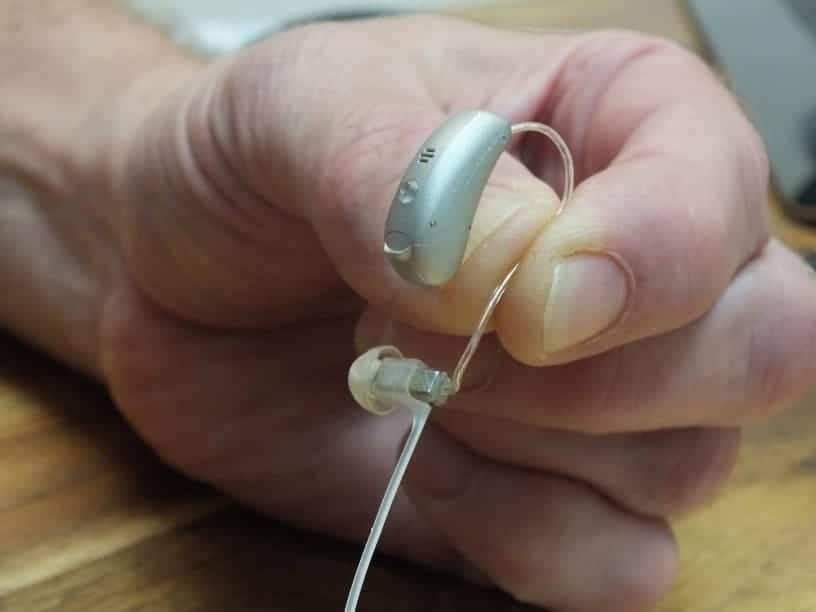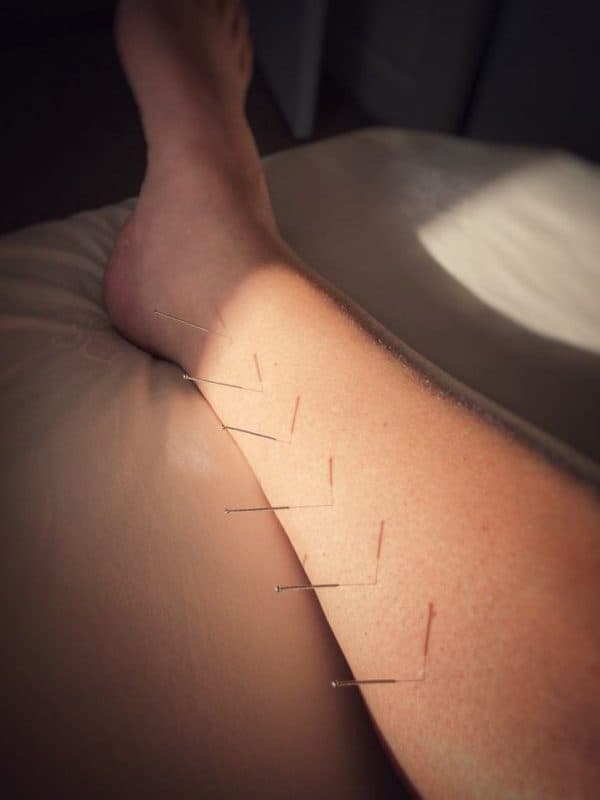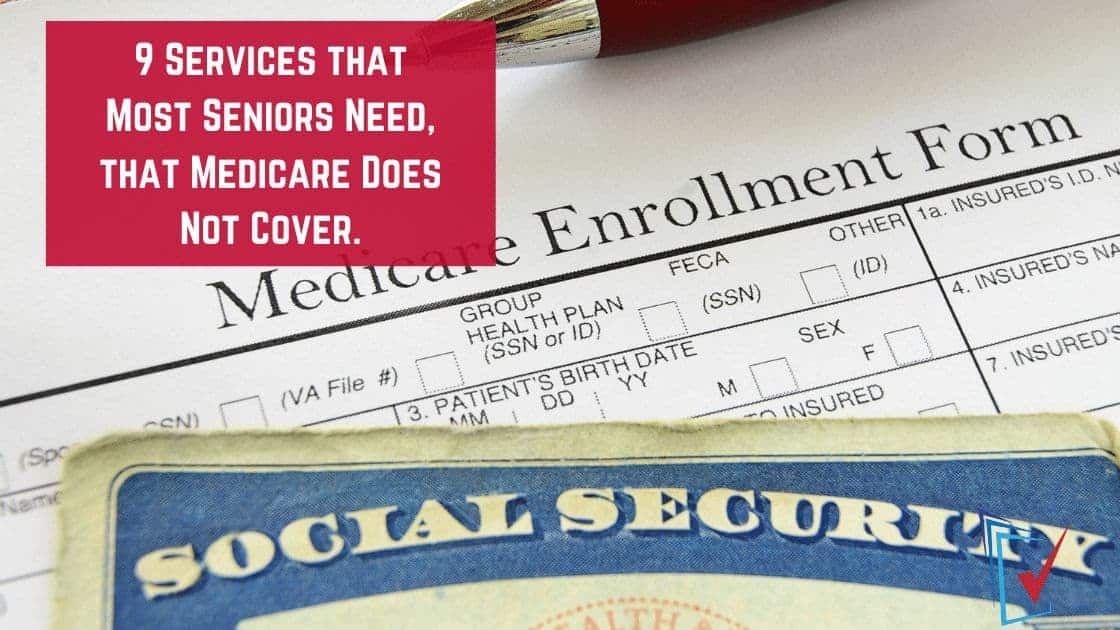We quickly break down 9 services Medicare does not cover that most seniors need. Feel free to share the article and infographic!

1. Dental Care
Medicare doesn’t pay for routine dental care, including cleanings and fillings. Dentures, implants, and other dental devices aren’t covered either. If you are hospitalized, Medicare Part A does pay for certain dental services received, but only if the services are medically necessary. You’ll need to buy a dental plan for your routine dental care needs or enroll in a Medicare Advantage plan with dental coverage. You can find and compare dental plans for seniors here.

2. Hearing Aids
Most people find it challenging to hear as they age, especially in a noisy environment. Medicare doesn’t cover hearing aids or the exam required to select and fit an appropriate hearing device. However, Medicare might cover an exam if your doctor determines it’s medically necessary (e.g., balance-related). And Medicare covers surgically implanted devices, such as cochlear implants, that offer a sense of sound. Shop hearing aids here.
3. Routine Eye Exams
Medicare covers eye exams and tests for people with specific conditions, such as an annual glaucoma test for high-risk retirees, a yearly eye exam for diabetic retinopathy, and tests and treatments for age-related macular degeneration. However, vision checks to prescribe glasses and contact lenses are not covered. The exception to this rule is your “Welcome to Medicare” preventive care visit during the first 12 months you have Medicare Part B. Get an eye exam scheduled online here.

4. Glasses and Contact Lenses – Most of us will need corrective lenses to see well as we age, but Medicare doesn’t cover the cost of glasses or contact lenses for most people. But, if you need cataract surgery and your doctor implants an intraocular lens, Medicare will cover one pair of eyeglasses or one set of contact lenses from a Medicare-approved supplier. You can shop glasses and contacts here.

5. Routine Foot Care
Medicare covers podiatry services for injuries to the foot, including hammertoes, bunions, and heel spurs. However, Medicare doesn’t cover foot care, such as removing calluses and corns, nail maintenance, or foot cleaning. Exams and treatment are covered if you need to treat a chronic condition, such as diabetes, including custom-molded shoes and inserts for those with severe diabetic foot disease and orthopedic shoes if you have a leg brace.

6. Acupuncture
Many people swear by acupuncture to relieve various ailments, but Medicare does not cover it. You can get your chiropractor visits for medically necessary manipulation of the spine covered, but Medicare may not cover other chiropractic services, such as X-rays and massage therapy.

7. Cosmetic Surgery
Medicare doesn’t cover cosmetic surgery unless it’s medically necessary. For example, Medicare will typically pay for the required surgery because of an injury or deformity. Common instances include:
Artificial limbs and their replacement parts.
- Artificial eyes.
- Breast prosthesis after a mastectomy.
8. Medical Care Received Outside the U.S. and its Territories
Medicare does not cover health services received in another country. However, when Medicare pays, circumstances such as if a foreign hospital is closer than the nearest U.S. hospital for a beneficiary injured in the U.S. The most common example is receiving emergency medical services in Canada while traveling between the continental U.S. and Alaska. If you plan to travel abroad, buy a Medicare supplement plan or travel insurance.

9. Personal Care & Long-Term Care
Medicare typically won’t cover the cost of personal care services, including help for bathing, dressing, getting out of bed, shopping, housekeeping, meals delivered to your home, or 24-hour assistance at home. You might qualify for custodial care costs through Medicaid if you're poor.
Medicare does cover short-term care in a skilled nursing facility if it follows a hospital stay of three or more days. Although you don’t have any cost-sharing during the first 20 days of care, you’ll pay $170.50 per day (2019 rate) for days 21 through 100. Medicare does not cover nursing home stays that exceed 100 days. For this, you’ll need long-term care insurance. For information about LTC coverage, you can get more information about the Long-Term Care insurance guide here.
Summary: Although Medicare covers most of your direct medical costs, it doesn’t cover everything. As you age into retirement, you'll need to plan and buy additional coverage to ensure coverage for your dental, vision, hearing, long-term care, and other healthcare needs.
If you qualify for Medicare but don't know where to start, we have licensed insurance agents ready to answer your questions and help you enroll in Medicare Advantage, Medicare Supplement Insurance, and Prescription Part D plans.



